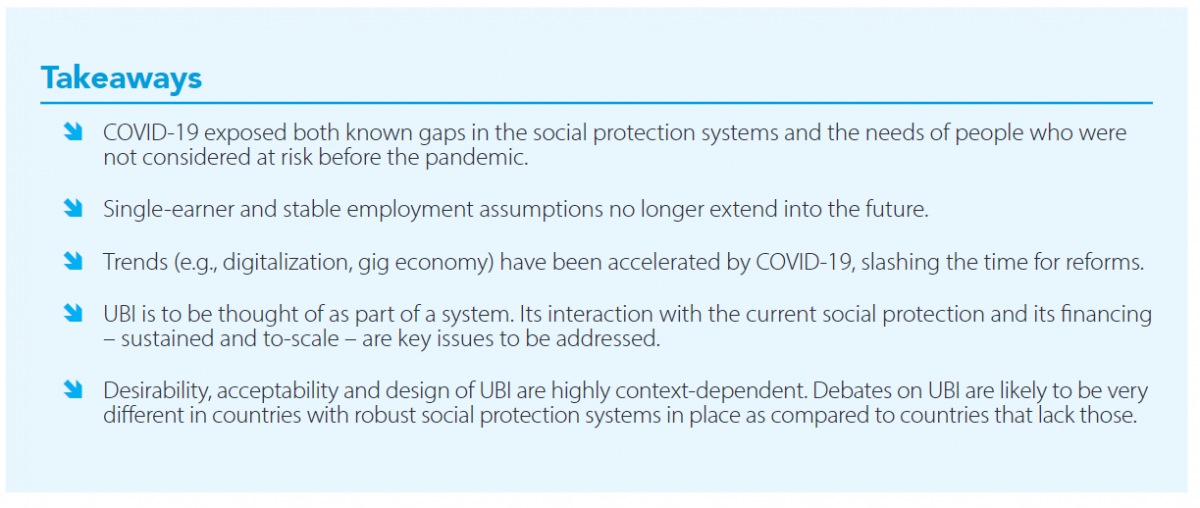
Welcome to our expert series on the post-COVID reset. That is, a reset along a more inclusive and equitable path. The series introduces listeners to leading thinkers as they put forward concrete policy options for such a recovery and take stock of the data that could (and should) inform these policy shifts.
This is a three-thread podcast concerned with social protection and its place in the COVID-19 crisis. It discusses concrete cracks in the systems and solutions to redress them.
The expert today is Monika Queisser, OECD’s Head of Social Policy. The host is John Crowley, UNESCO's Chief of Research, Policy and Foresight.
Thread 1: Current systems
The first thread focuses on social protection, covering:
- How did the current social protection systems perform in crisis?
- What gaps in social protection were exposed and driven further by the pandemic?
- What trends (e.g., digitalization, gig economy) have accelerated in crisis, and what reforms need to be fast-tracked as a result?
Thread 2: Women during crisis
This thread discusses the gender dimensions of social protection, looking at it as both part of the problem and part of the solution. It delves into:
- How did women fall through the cracks in the current social protection systems?
- Who shouldered the unpaid household and care work during the pandemic?
- How was the extra burden of lockdowns and school closures absorbed?
- What is the place of gender in recovery policies?
Thread 3: Universal basic income
The final thread is concerned with universal basic income (UBI) in the context of the immediate response to COVID-19 and, importantly, long-term policy responses. It asks:
- How should UBI be thought of as part of the broader social protection system?
- Why are the mechanisms of UBI financing key to acceptability and buy-in?
- What do the UBI trials and simulations tell about its limits, feasibility, and scale-up?
- Why do country contexts matter?

Have you seen?
Basic Income – deciphering the promises and the data
Post-COVID recovery: how Latin America should treat its inequalities
Universal Basic Income and beyond - what are our options for recovery
Gender inequality in times of COVID-19 – give women cash
On the go? Listen and subscribe here:
Also on: Apple Podcasts | Google Podcasts | Spotify | Amazon Music | YouTube | Deezer | Anchor
---
Monika Queisser is the Head of Social Policy at the OECD and is an expert on pension reform within the organization. Prior to her time at the OECD, she was a member of the Financial Development Department at the World Bank in Washington D.C.
John Crowley is UNESCO‘s former chief of research, policy, and foresight. He is the author of five books and a further 100 academic articles and book chapters, mainly on political theory and comparative politics.
The facts, ideas and opinions expressed in this piece are those of the authors; they are not necessarily those of UNESCO or any of its partners and stakeholders and do not commit nor imply any responsibility thereof. The designations employed and the presentation of material throughout this piece do not imply the expression of any opinion whatsoever on the part of UNESCO concerning the legal status of any country, territory, city or area or of its authorities, or concerning the delimitation of its frontiers or boundaries.
